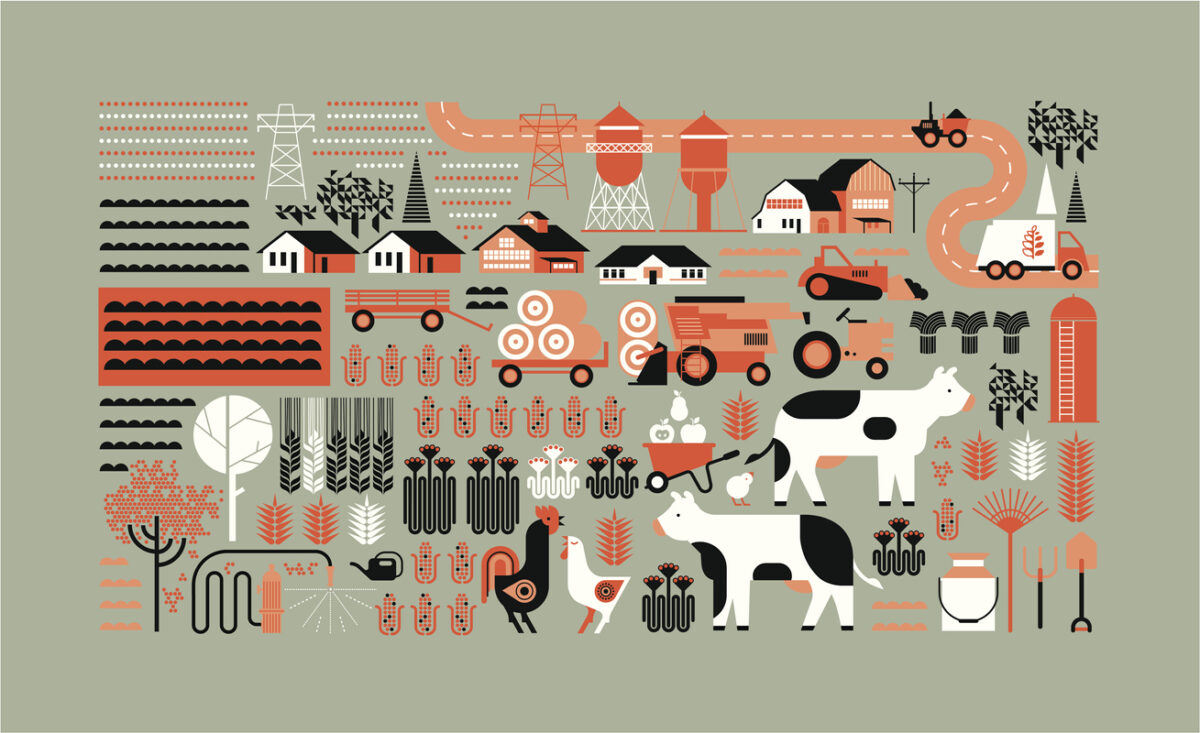Germany to introduce mandatory animal husbandry labelling for meat products

A mandatory animal husbandry labelling system has been approved for use on meat products produced in Germany.
The new label is being introduced to offer consumers clearer information about how animals were treated prior to slaughter, helping them make more informed decisions when buying meat.
Germany’s federal council approved the Tierhaltung (animal husbandry) labelling law in July and is bringing it into effect later this year.
The initiative will initially apply to pork products in the retail sector and will be based on how pigs are kept and how they are treated during the fattening period before they are sent to the abattoir.
It will eventually be expanded to include other animal species. Restaurants and food manufacturers are also likely to be required to use the labels in the future.
The labels will display five levels which indicate how the animal was treated. The lowest level shows the animal was kept on an indoor farm. This is followed by an indoor farm with 20% more space compared with legal minimum standards, an indoor farm with access to open air, a farm with outdoor access and at least 86% more space compared to legal minimum standards, and an organic farm with the largest amount of outdoor and indoor space.
While not obligatory, the bill also gives German retailers the option to apply the label to meat products that have come from other EU member states and third countries.
A private animal husbandry labelling scheme has been in place in the country since 2019 called Haltungsform, and has been used by several retailers. In contrast with the Tierhaltung labelling law, Haltungsform is composed of four levels. The lowest level indicates the animal was kept on an indoor farm, followed by indoor farming ‘plus’ outdoor access, and premium – where an animal is said to have received the highest level of treatment. This label has been applied to pork, poultry, beef, and rabbit meat. Retailers are still allowed to use the Haltungsform but will also now be required to show the federal label on meat products.
Germany’s Federal Minister of Food and Agriculture Cem Özdemir commented on the news in a statement: “The future-proof conversion of animal husbandry is coming! After years at a standstill, we are giving our farmers direction by enabling them to earn good money with more animal welfare. I want good meat to continue to come from Germany in the future. Our husbandry labelling is a prerequisite for this – and at the same time a huge step towards more transparency when shopping, because consumers can give the market a decisive direction towards more animal-friendly husbandry.
“Although we have achieved so much, it is only the beginning: we are already working intensively on the rapid expansion of animal husbandry labelling, initially to the catering trade and processed products. We then include other livestock species, life stages and distribution channels. We also want to go further with the labelling of origin.”
In the UK, eggs are the only animal product to be labelled according to method of production. The country relies on certification schemes such as RSCPA Assured, Red Tractor and The Soil Association to give consumers an idea on how animals were treated. Some retailers have taken part in voluntary labelling schemes, indicating whether an animal was ‘outdoor bred’ or ‘outdoor reared’. In 2019, Lidl also trialled the UK’s first method of production meat label on its fresh chicken, pork, turkey, duck and egg products.
James West, Chief Public Affairs Manager at Compassion in World Farming has called for a mandatory labelling scheme like Germany’s to be implemented in the UK: “The Government’s disgraceful U-turn could leave shoppers in the dark and animals suffering behind vague, even misleading food labels. For years, we have called for meat and dairy products to be labelled, like eggs, by method of production – helping shoppers make informed choices. Since 2004, eggs have been labelled to state how hens are housed and now, the majority of the UK’s hens live cage-free. So, extending welfare labelling could be a huge step towards transforming the lives of millions more farmed animals, and this should clearly be seen as a priority.
“The UK Government needs to honour its commitment to hold a consultation on mandatory labelling in 2023 and listen to the evidence about what this would mean for the welfare of farmed animals and the empowerment of consumers.”
Environmental labelling is topic of growing concern for the food industry. Earlier this year, Tetra Pak called for a mandatory initiative to be introduced on food and drink packaging to help consumers see the sustainability credentials of the products they buy.










